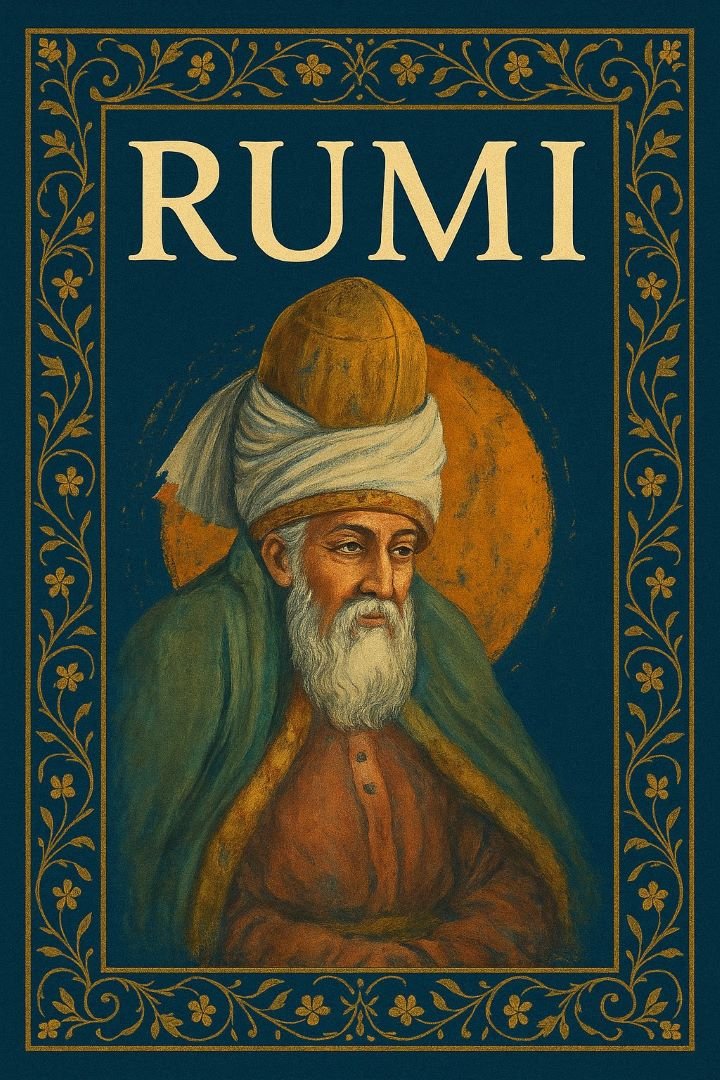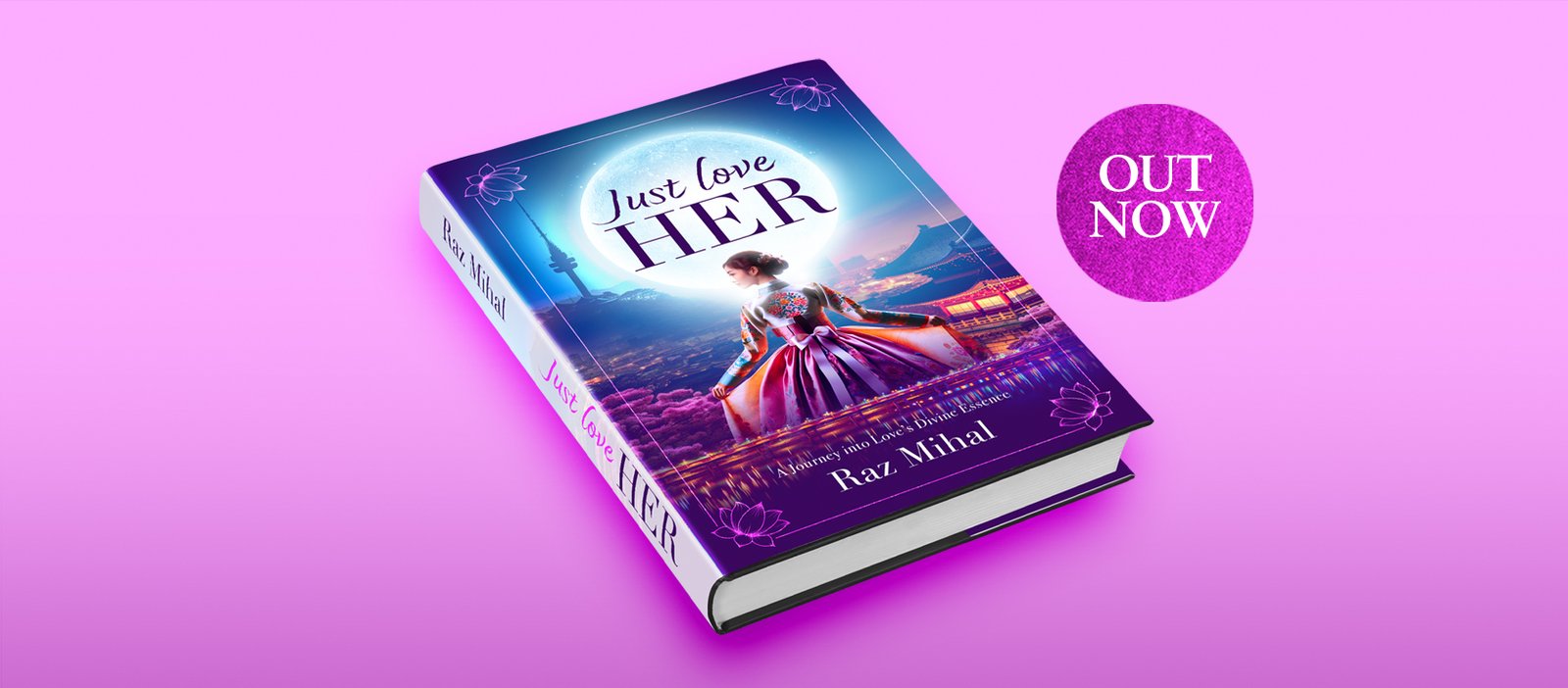Introduction
Few names resonate across cultures and centuries like Jalaluddin Rumi. Born in the 13th century, Rumi’s words continue to inspire millions with their transcendent beauty and spiritual depth. His poetry, infused with divine love and profound mysticism, speaks to the universal human quest for meaning and connection. This comprehensive guide explores Rumi’s life, his teachings, and his lasting legacy, alongside recommended books for both newcomers and seasoned admirers.

The Life of Rumi
Rumi, or Jalal ad-Din Muhammad Rumi, was born on September 30, 1207, in Balkh (present-day Afghanistan). He hailed from a family of Islamic theologians. His early life was marked by displacement, as his family fled the Mongol invasions, eventually settling in Konya, in present-day Turkey.
Rumi grew up immersed in Islamic scholarship, quickly becoming a respected scholar and jurist. However, his life took a radical turn in 1244 when he met the wandering dervish Shams of Tabriz. This meeting transformed Rumi’s worldview, igniting a profound spiritual awakening. Shams introduced him to the deeper, mystical dimensions of faith, emphasizing love, divine unity, and personal connection with God.
The intense companionship between Rumi and Shams eventually led to Shams’ mysterious disappearance, which profoundly affected Rumi. It was after this loss that Rumi began composing his most famous poetic works, channeling his longing and spiritual ecstasy into verse.
Rumi’s Teachings: Themes and Philosophies
Rumi’s teachings are grounded in Sufism, the mystical branch of Islam, which seeks direct experience of the divine. His poetry touches on numerous universal themes:
- Divine Love: Central to Rumi’s teachings is the concept of unconditional love that transcends earthly desires and connects the soul directly with the Divine.
- Unity of Being (Tawhid): Rumi emphasized the interconnectedness of all existence, famously expressing, “You are not a drop in the ocean. You are the entire ocean in a drop.”
- Transformation through Suffering: For Rumi, suffering was not an end but a pathway to spiritual growth and enlightenment.
- The Spiritual Journey: Much of Rumi’s poetry describes the soul’s journey towards God, filled with trials, revelations, and ultimate union.
- Mystical Joy and Ecstasy: Rumi often described spiritual experiences as moments of pure joy and ecstatic celebration, leading to practices like the Whirling Dervish dance (Sema), a meditative movement symbolizing spiritual ascent.
Famous Works by Rumi
Rumi’s literary legacy is vast, but certain works stand out for their lasting influence:
1. The Masnavi (Masnavi-i Ma’navi)
Often called “the Quran in Persian,” the Masnavi is Rumi’s magnum opus, comprising six books of spiritual couplets. It offers parables, stories, and spiritual reflections, making it a cornerstone of Sufi literature.
2. Divan-e Shams-e Tabrizi (The Collected Poems of Shams of Tabriz)
This collection contains over 40,000 lyrical poems, ghazals, and quatrains that express Rumi’s ecstatic devotion to Shams, God, and the path of love.
3. Fihi Ma Fihi (In It What’s in It)
A prose work capturing Rumi’s teachings in conversational form, offering insights into his thoughts on Sufism, theology, and philosophy.
Recommended Books on Rumi
For readers eager to immerse themselves in Rumi’s mystical world, these books are excellent starting points:
- “The Essential Rumi” translated by Coleman Barks: A modern classic, Barks’ translations capture Rumi’s lyrical essence, making his poetry accessible and deeply moving.
- “Rumi: The Book of Love” by Coleman Barks: Focused on Rumi’s exploration of divine and earthly love, this collection is ideal for those drawn to the theme of love’s transformative power.
- “The Masnavi: Book One” translated by Jawid Mojaddedi: For a more academic approach, Mojaddedi’s translation offers faithful renderings with contextual notes.
- “Rumi’s Little Book of Life” translated by Maryam Mafi and Azima Melita Kolin: A selection of accessible and poignant verses exploring existential themes and spiritual introspection.
- “Rumi: Bridge to the Soul” by Coleman Barks: A delightful collection of short, often witty, poems reflecting the mystical joy and wisdom of Rumi.
Influence and Legacy
Rumi’s influence spans cultures, religions, and generations. His works are cherished not only in the Islamic world but also globally, resonating with seekers from various spiritual traditions. The Mevlevi Order, known for the Whirling Dervishes, continues to honour his teachings, and his mausoleum in Konya remains a pilgrimage site.
In the West, Rumi has been embraced as a universal poet of love, often quoted in spiritual, literary, and even popular contexts. His emphasis on love, compassion, and the inner journey transcends religious and cultural boundaries, making him a timeless guide for humanity.
Conclusion
Rumi’s life was a remarkable fusion of scholarly pursuit and mystical ecstasy. His poetry continues to be a beacon for those seeking deeper meaning, love, and connection. As Rumi beautifully said, “Let yourself be silently drawn by the strange pull of what you really love. It will not lead you astray.”
Whether you are taking your first steps into mysticism or deepening your spiritual practice, Rumi offers a wellspring of wisdom to nourish your soul. His timeless teachings remind us that love is the essence of our being and that the journey inward is the most rewarding quest of all.
Happy reading, and may Rumi’s words illuminate your path!







